Three type of Wealth (by OECD)
- Material Wealth
- Social Wealth
- Psychological Wealth
SWB Psychological Wealth, Korea only has Material Wealth of these three (by statistics)
Social Wealth of Korea
almost last of OECD - low 'can count on other's factor' and 'feel respected''
→ Economic, objective life conditions do NOTfully explain national differences in happiness
Rich country is happy, but it has exception by social wealth - ex. north-east Asia low and mid-south America is high
political object statistics ex. north Korea Cation : Bangladesh Bhutan is not happy (statistics coincidence) happiness is not index of Utopia ex. Venezuela politic
Culture
Culture = Air - culture influences each and every phase of SWB, but usually difficult to notice
defined happiness - Buddihism "this is happiness" can't give happiness
So What cultural factors are particularly relevant?
Individualism <-> Collectivism
most important part of cultural factor
Whether individual values are fully respected and valued (become a “statue”) or considered after the ideals, goals of the group (Nordic taboo)
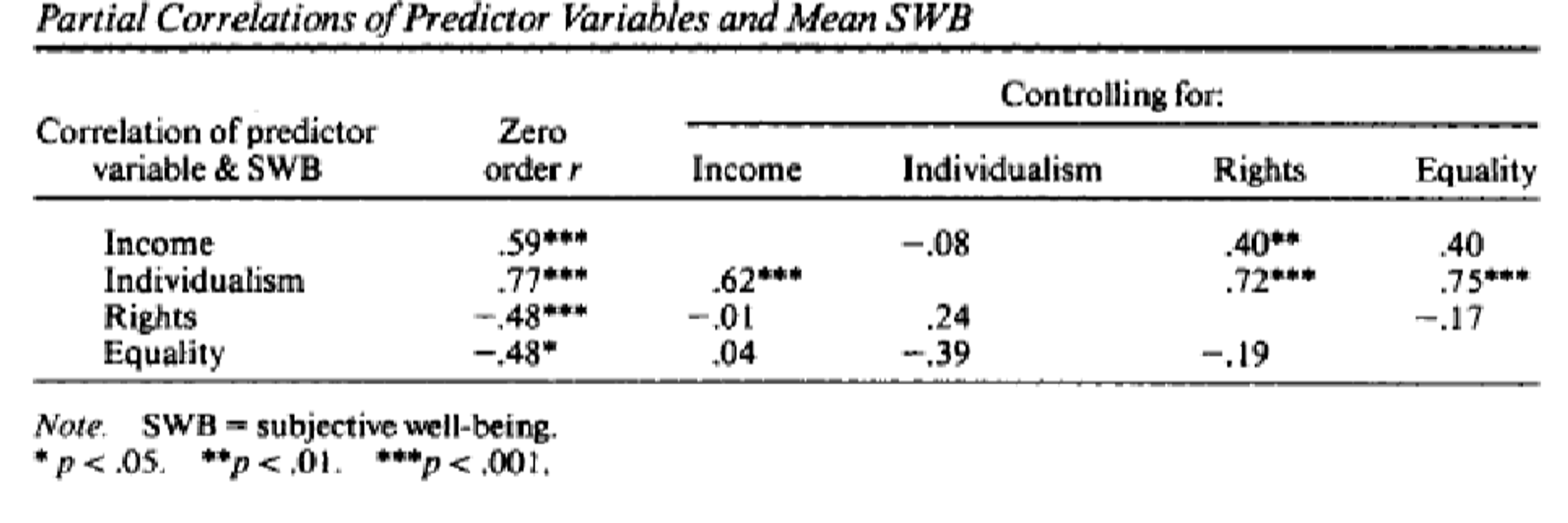
- income - do not has effect to income has effect to rights
- rights - has correlation with happiness
- equality - has correlation with SWB
- individualism - increase happiness has effect to income direction only has effect to rights and equality both
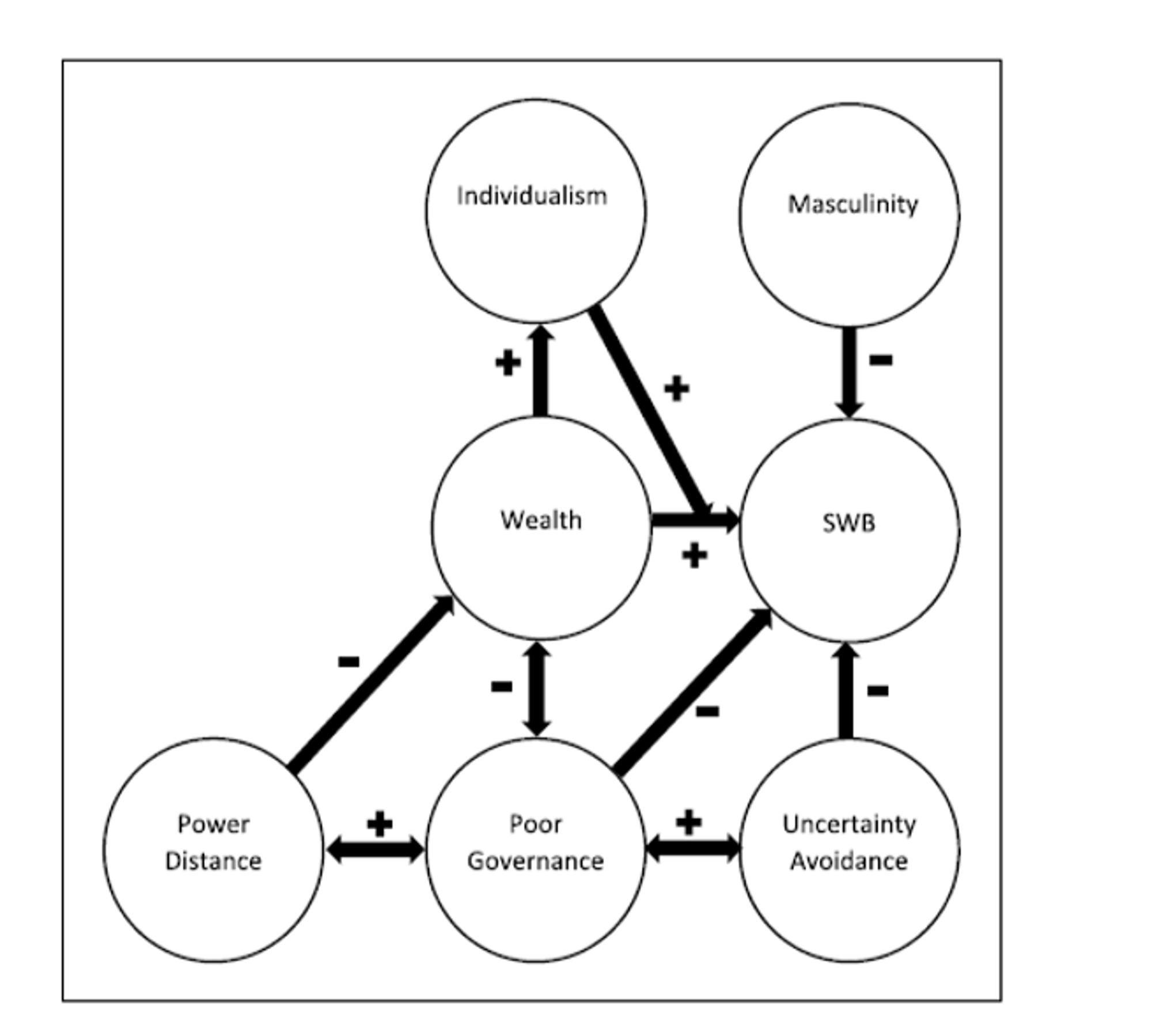
Nordic taboo - evaluate other life
collectivism is good system to react to crisis but cost is individual happiness
Self-view
Similar contrast in Fundamental views about the self
- interdependent self-view (Collectivism)
- independent self-view (individualism)
Need Free expressions of emotion & personal belief, AND greater understanding by others - right/wrong decisions by the person (not authority)
Self schema
- self has clear boundary between self and friend in I
- all individual has clear boundary
- respect individual internal attribute property
stranger E out-group, self and friend E in-group and all three is individual
- self and friend boundary is unclear and close distance
- but group has clear boundary
- share individual internal attribute property
summary : like week tie is important, independent individual is important, so sense of personal freedom so to maintain happiness do not revise judgment by other's opinion
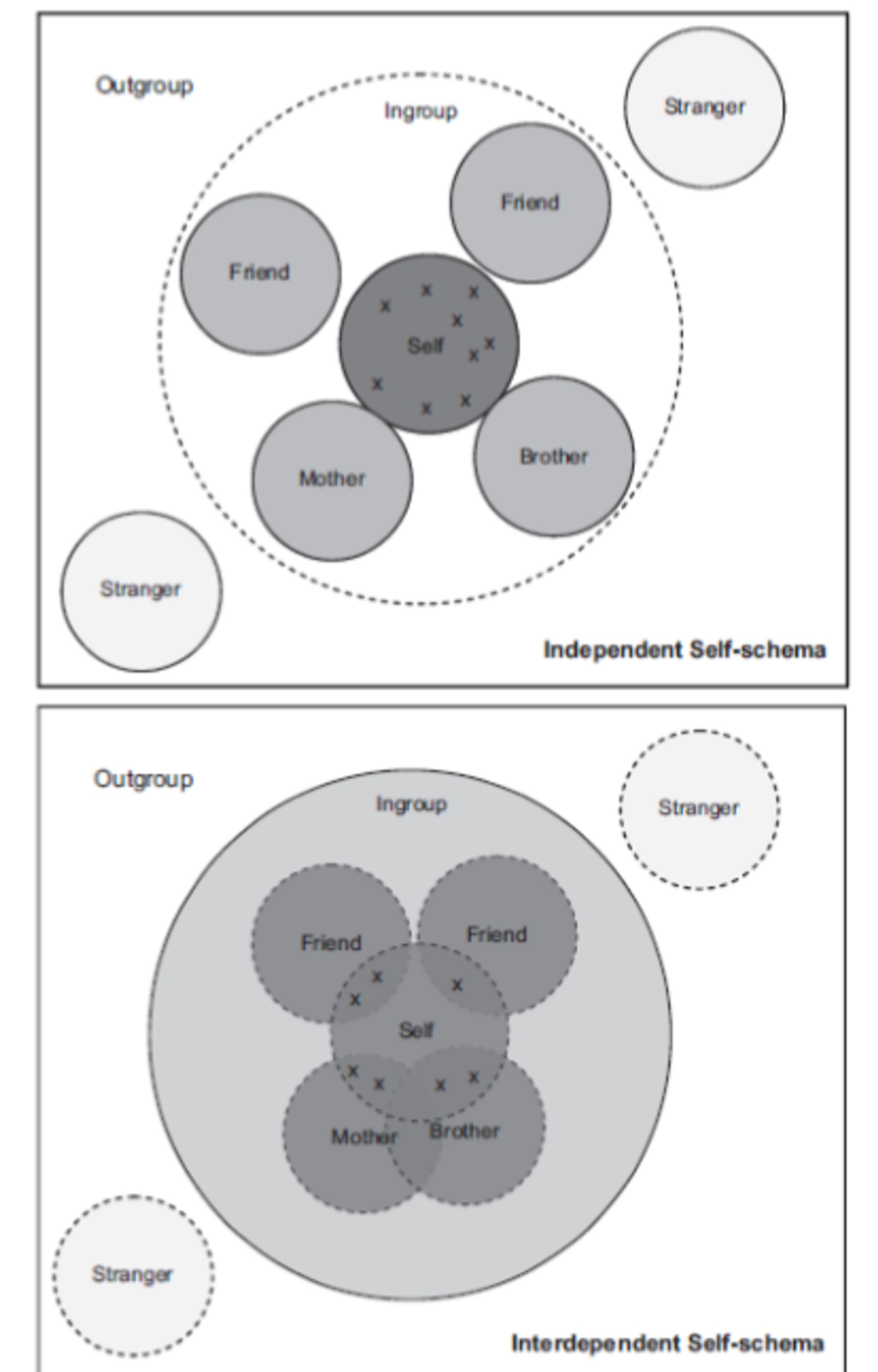
proper physical distance is flexible, but if it is broken, very disturbing - Edward Hall
Judgment of i'm happy
human use heuristic cue to judgment of happiness and cues are like this
- mood at individualism
More individualistic cultures “look” primarily into their inner emotions
- norm at collectivism
other effect my think - just do enjoy
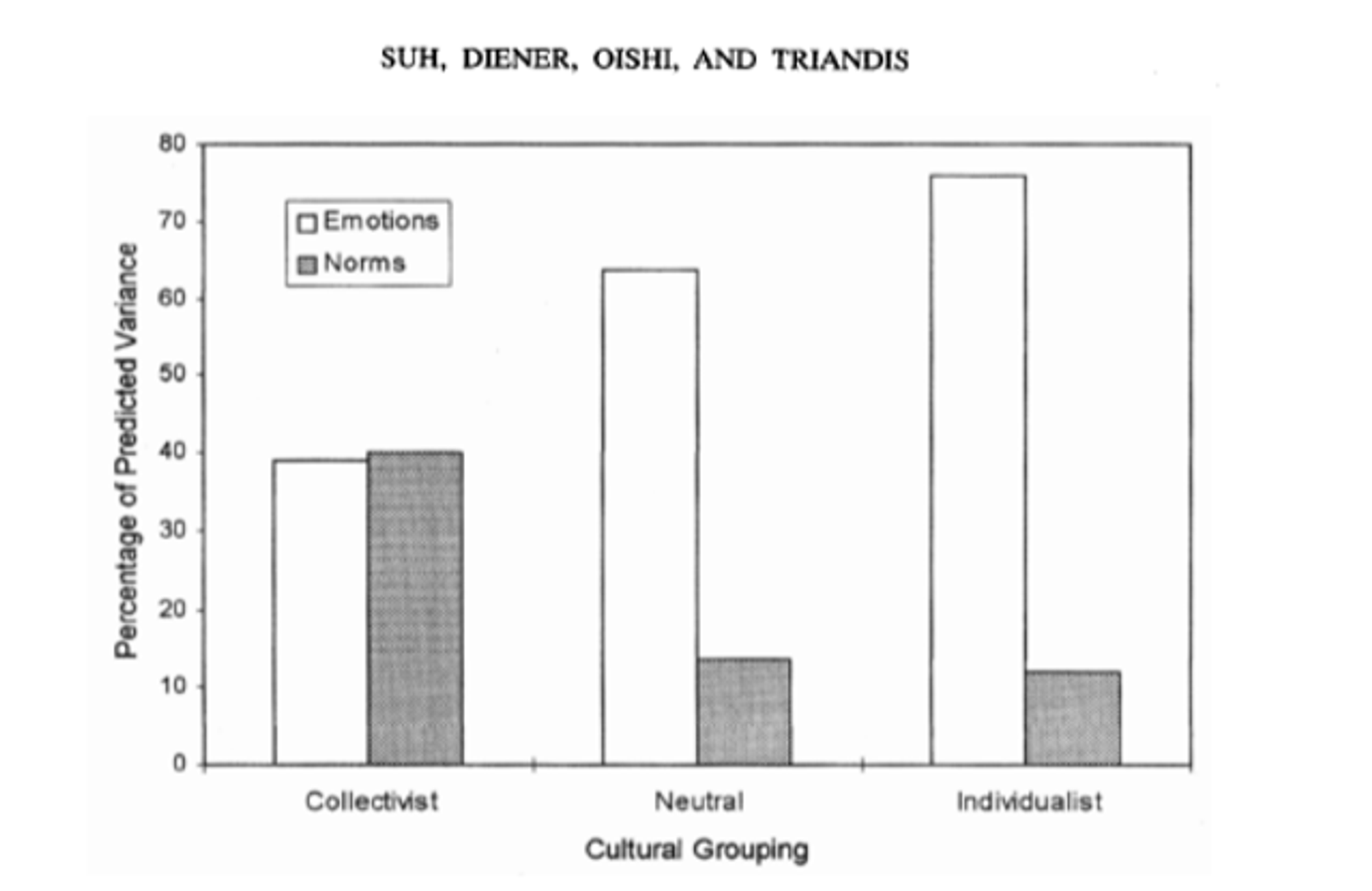
Other’s view matters when the relational self is primed
relational(personal) self makes self- view changing - so culture is chronic primer
relational self <-> independent self
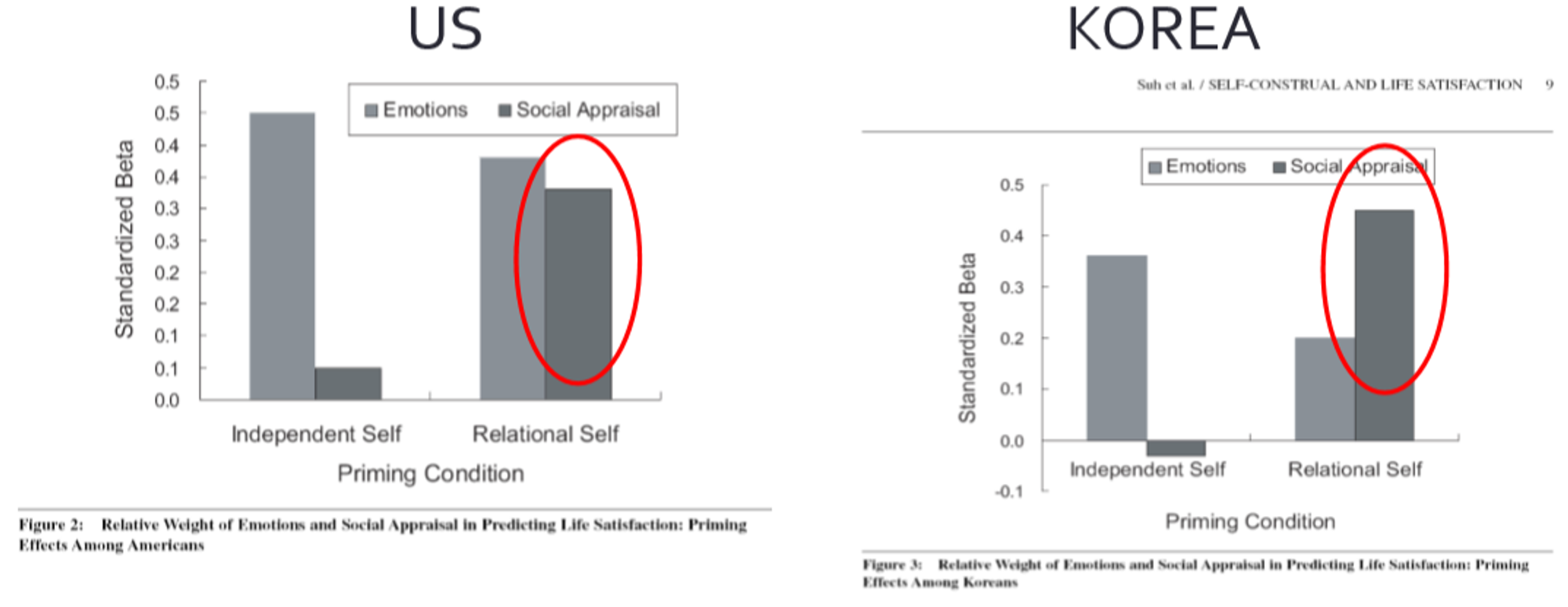
in relational self both important but collectivism chronic primer
Collective well-being
Some aspects of individualism (competition, focus on personal achievement) do not raise happiness
collective self - self-conceptions based on one’s membership in groups or social categories
National Satisfaction
more important in poor than rich countries - emphasizing 'group' happiness
turade-offs
- more forceful norms
- less acceptance of individuals 'outside' the group
- more corruption (to please group)
Other National dimensions
Power distance (PD) Acceptance(extend)
PD acceptance degree to that power is distributed unequally
Korea is high power country - high power individuals advice, interference frequently
Uncertainty Avoidance (UA)
degree of society's tolerance for uncertainty and ambiguity
Korea has high - make strict law, rules and regulation - Make social standards (ex. clothes , trend)
Open society - social factors
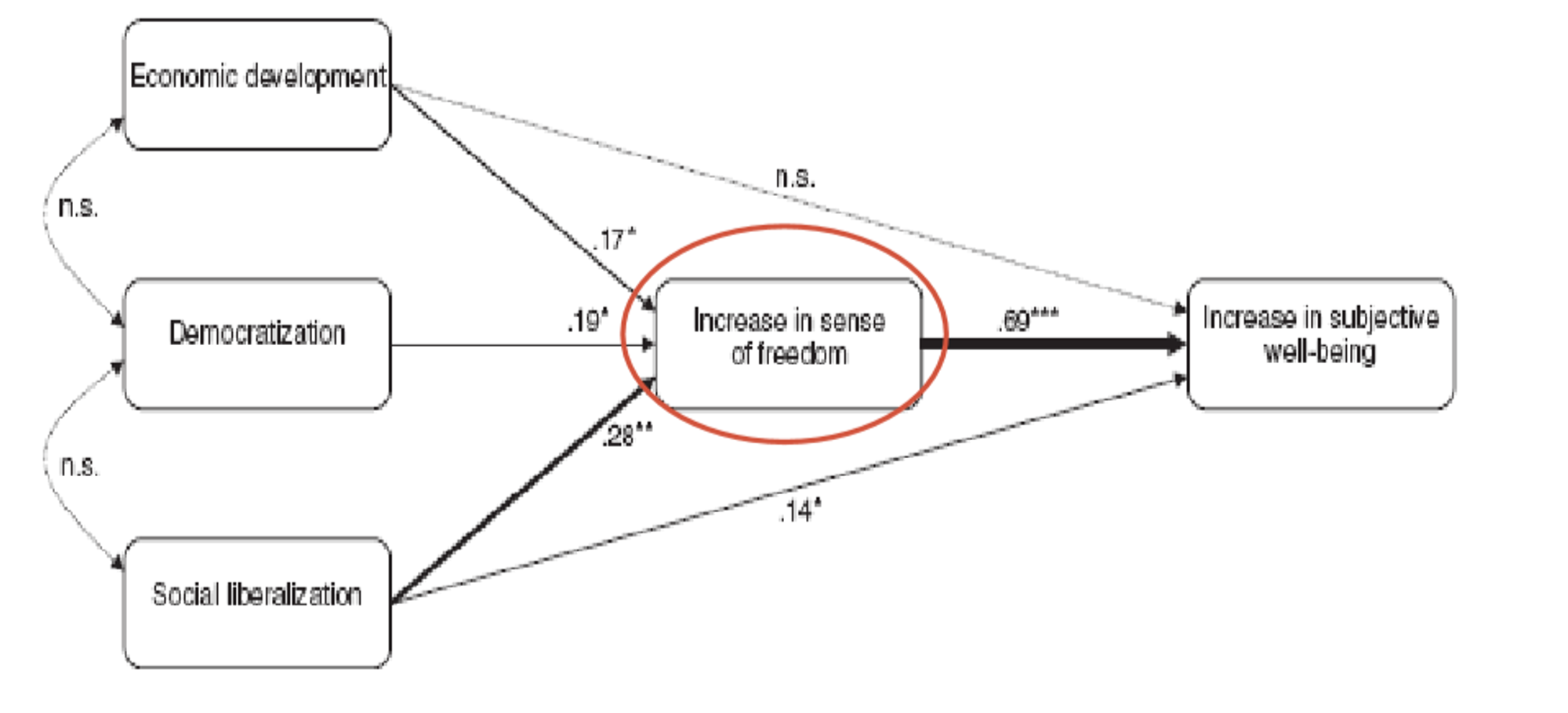
trust is important in happiness (denmark is strong individualism and trust)
non-materialism - also important
Freedom - "glue" between economy & SWB
Summary
key feature - freedom, less formality, law corruption, strong social trust
other people should be joy, pleasure - not fear, anxiety


 Seong-lae Cho
Seong-lae Cho